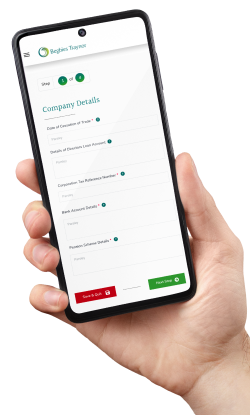Fraudulent trading encompasses a number of actions which can be undertaken by a company director with the express aim to intentionally defraud creditors of the company. The key to fraudulent trading is the 'intent' behind the actions. In order for a director to be found guilty of, and held liable for, fraudulent trading, the intent to deceive must be proven.
Some examples of fraudulent trading can include the following if the intent to deceive can be shown as a motivation factor for the action:
Fraudulent trading carries severe penalties and sanctions for directors found guilty of such behaviour.
Under the limited liability operating structure, directors enjoy legal separation from their company’s financial affairs. They typically benefit from limited liability for business debts, but this can change under certain conditions. The ‘veil of incorporation’ may be lifted in situations where directors have acted inappropriately, or with the intent to defraud - if limited company directors set out to deliberately worsen the financial losses of creditors, for example.
Concerned about the National Insurance increase?
For the 2024-25 tax year, the rate of employer National Insurance increases from 13.8% to 15% adding yet more pressure onto already squeezed cash flows. If you are worried about the impact this could have on your company’s finances, talk to the experts at UK Liquidators. As licensed insolvency practitioners we can explain your options and help you plot a way forward. Call today on 0800 063 9262.
Instances of fraudulent trading often come to light when an insolvent company enters liquidation. When a company is liquidated, the office-holder (which may be an insolvency practitioner or an appointed Official Receiver) is obliged to conduct an investigation into the reasons behind its failure and report their findings to a specialist team within the Insolvency Service.
Directors accept statutory duties when they take on this role within a limited company, and one of these duties is to ensure creditors take priority should their company become insolvent. Failure to do this could be seen as fraudulent or wrongful trading depending on the circumstances and severity of this non-compliance.
This requirement upon the insolvency practitioner to investigate is in place to protect the public at large from unscrupulous directors – those who set up a business under the corporate structure purely to deceive and defraud.
Liquidation Portal
For Company Directors

There’s a key difference between fraudulent trading and wrongful trading, and that lies in the intent behind the directors actions. Fraudulent trading differs from wrongful trading in its deliberate nature and is a criminal offence under the Insolvency Act, 1986, rather than a matter for the civil courts.
If the director knew their actions would adversely impact customers or suppliers, and they carried on regardless, deliberately entering into transactions they know would only benefit the company and its shareholders, allegations of fraudulent trading could be made.
Long-term fraud
Long-term fraud can occur if a company is set up to deliberately perpetrate fraud. The directors may initially pay their suppliers on time, for example, but eventually seek to defraud their creditors by accepting increasingly higher levels of credit, making larger orders, and then failing to repay.
Short-term fraud
Not necessarily set up for nefarious purposes, the company may trade ‘by the book’ for some time. Eventually, they start making large credit orders from suppliers with no intention of repaying, and potentially create serious financial difficulties for their creditors.
The knock-on effect of fraudulent trading by one company can cause rapid decline and potentially further insolvencies throughout a supply chain. It’s a ripple effect that impacts other businesses, suppliers, and customers alike.
Start your online liquidation today
If you have decided liquidation is the right option for your limited company, you can take the first step and begin the process online using our online portal. Starting the process is quick, simple, and can be done at a time that suits you. Your information will be submitted to your local UK Liquidators insolvency practitioner who will be with you every step of the way. Click here to start your company’s liquidation online.
Fraudulent trading must be clearly proven by the Insolvency Service, and carries more serious ramifications than cases of wrongful trading. These can include:
Clearly, a director who has been found guilty of fraud will also suffer serious reputational damage, which may hinder their attempts to find employment and other official roles in the future.
The onus is on the Insolvency Service to prove the intent to defraud. If proven, and a director breaches the terms of a court order, such as a disqualification or compensation order, a prison term may be handed down, as this is classed as a criminal offence.
If you would like more information and professional guidance on what constitutes fraudulent trading for a limited company, please get in touch with our expert team today. UK Liquidators offers same-day consultations free-of-charge, and operates a broad network of offices around the UK.
By completing the test, you will receive:
If you are considering liquidation for your company, taking expert advice at an early stage is crucial. At UK Liquidators, our team of licensed insolvency practitioners are committed to providing limited company directors with the help and advice they need to make an informed decision.




Looking for immediate support?
Complete the below to get in touch